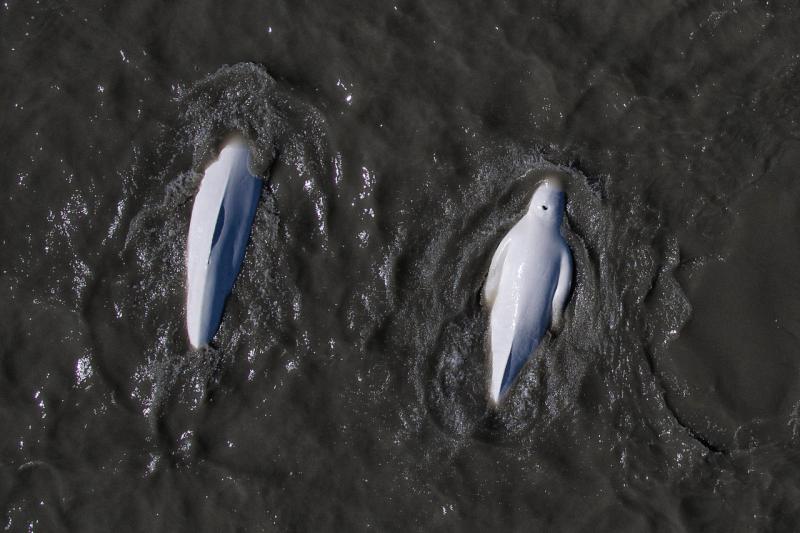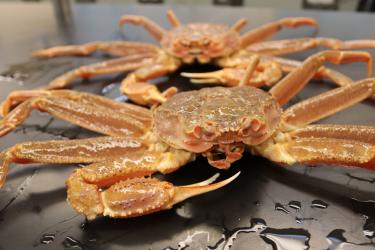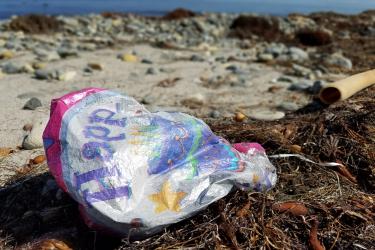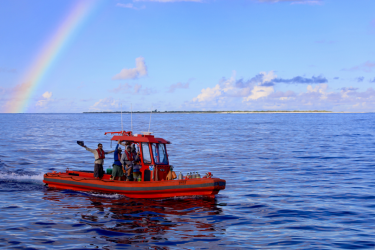Beluga whales live in the cold waters of Alaska, and there are five separate populations. Of those five, the Cook Inlet population is the smallest and has declined by about seventy-five percent. The endangered Cook Inlet beluga whale is a NOAA Fisheries Species in the Spotlight.
Known as "canaries of the sea" because of the many different sounds they make, these whales are highly social. Subsistence hunting may have contributed to their initial population drop, but this practice was regulated starting in 1999, with the last hunt in 2005. Still, the Cook Inlet beluga population has yet to recover.
Threats
- Diminishing food.
- Habitat loss or destruction.
- Pollution.
- Toxins.
- Human-caused noise, which hampers their ability to feed and communicate.
How NOAA is Helping
We conduct research to gain more information about the population and to understand which threats may be impacting them most. We use:
- Annual aerial surveys from aircraft and boat- or shore-based photo identification surveys that use unique markings to tell animals apart.
- Passive acoustics to listen for belugas.
- Drones to collects aerial imagery of belugas in the wild to gather information on the age classes and health status, and to identify new calves to get an estimate of calf production.
Future Conservation Actions

We are expanding biopsy studies, which will hopefully yield more information about sex, reproductive status, genetics, and contaminant loads. Public and private partners are also contributing by analyzing:
- Toxin levels in the whale’s prey.
- Beluga teeth to learn more about their age and past diet.
- Water quality.
- How belugas react to boats.
All of these findings will help us develop effective recovery strategies for Cook Inlet beluga whales.
What You Can Do
- If you’re out boating, give belugas space. Stay about a hundred yards away.
- If you’re flying over belugas, stay at least 1,500 feet above them.
- Report a stranded beluga whale (alive-stranded or dead-stranded) as soon as possible. Scientists can learn more about these animals by responding to a stranding.



